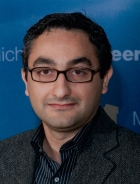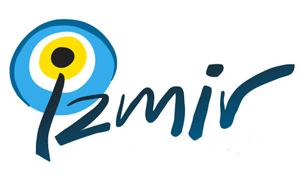| |
|
 Prof. Mohammad Reza Abidian |
Prof. Mohammad Reza Abidian is currently an Assistant Professor at Pennsylvania State University in the Departments of Biomedical Engineering, Materials Science and Engineering, and Chemical Engineering. He directs the laboratory Advanced Regenerative Biomaterials and Therapeutics for Neural Interfaces, which investigates at the interface of biomaterials and electronic devices to develop the next-generation of neural interfaces. His lab utilizes interdisciplinary approaches for development of low cost and high throughput medical devices and technologies for regenerative engineering, diagnosis, and treatment with an emphasis on neural interfaces and neurological diseases, in particular for neural recording and stimulation, neural tissue regeneration, drug delivery to brain tumor, and neurochemical sensing.
Prof. Abidian has received many awards and honors including Materials Research Society Silver Award, the University of Michigan Rackham Pre-Doctoral Fellowship, College of Engineering Student Distinguished Achievement Award, and Plenary Speaker in 2nd and 3rd US-Turkey Advanced Study Institute on Healthcare Challenges, sponsored by the NSF in Antalya, Turkey. His research has been featured several times on the cover of frontier journals including Advanced Materials and Advanced Functional Materials, and Advanced Healthcare Materials. Prof. Abidian received his B.S. in Mechanical Engineering and M.S. in Biomedical Engineering from Amirkabir University of Technology (Tehran Polytechnic) and his Ph.D. in Biomedical Engineering from University of Michigan. He completed his postdoctoral training in the Center for Neural Communication Technology and Plastic Surgery Department at the University of Michigan.
|
| |
|
 Dr..Colin JH Brenan |
Dr. Colin J.H. Brenan is a serial life sciences entrepreneur and senior executive with 30 years experience in scientific research, project management, product development, strategic marketing and financing of early-stage life science companies. Dr. Brenan is currently a Founder and Chief Commercial Officer for HiFiBiO BV (www.hifibio.com). Formerly he was Managing Director of the Monsanto-Atlas Seed Fund Alliance at Atlas Venture (Cambridge, USA) where he identified and invested in seed and early-stage life science companies. Prior to Atlas, Dr. Brenan was Director of Strategic Relationships for the Center for Integration of Medicine and Innovative Technology (Boston, MA) where he implemented CIMITís innovation strategy with external partners, raised $6M in funding and launched a start-up (Organ Solutions) from the CIMIT Accelerator.
Previous to joining CIMIT, Dr. Brenan was the Founder, Chief Technology Officer and Senior Vice President, Business Development for BioTrove Inc. (Woburn, USA), a life science tools and consumables company spun-out from the Massachusetts Institute of Technology (MIT) and acquired by Life Technologies Inc. (LIFE:NASDAQ); and a Founder of Biocius Inc., a drug development instrument and service provider spun-out from BioTrove and acquired by Agilent Inc. (A:NYSE). At Biotrove, he was responsible for development of the OpenArrayTM and RapidFireTM products, expansion of the intellectual property portfolio from one patent application to 76 issued and pending patents, $8M in strategic sales and was the lead or co-lead in raising $30M of investment capital from corporate and venture capital partners. BioTrove is a MIT TLO Success Story, winner of the 2009 North American Frost & Sullivan Award for Growth Strategy Leadership of the Year and the acquisition of BioTrove by Life Technologies was voted one of the top ten M&A transactions of 2009 by PriceWaterhouseCooper.
Dr. Brenan is the inventor on 17 US and 18 foreign patents, and published +50 peer-reviewed journal articles, book chapters and reports in the fields of bio-microsystems, confocal microscopy, spectroscopic imaging and microsurgical robotics. He has over a decade of experience in consulting for the US National Institutes of Health and is a reviewer for IEEE, IEE, and AIP journals. Dr. Brenan is a Senior Member of the IEEE-EMBS, the Founder and former Chair of the EMBS Boston Chapter (2002-2007), the EMBS Region 1 Representative (2002-2005), the EMBC 2011 co-Chair and is Editor-in-Chief of IEEE PULSE Magazine (2013-present). He received his B.Sc. (Honors Physics), M. Eng. (Electrical), and Ph.D. (Biomedical Engineering) from McGill University (Montreal, Canada) and completed post-doctoral training at MIT (Cambridge, USA).
|
| |
|
 Prof. Sheereen Majd |
Prof. Sheereen Majd, Ph.D. received her B.S. in Mechanical Engineering from Amirkabir Institute of Technology, Tehran. She completed her Ph.D. in Biomedical Engineering at the University of Michigan, Ann Arbor, in 2009. Her doctoral work, under the supervision of Dr. Michael Mayer, focused on molecular interactions on lipid membranes. After a short postdoctoral training at the University of Michigan, Prof. Majd Joined the Department of Bioengineering at the Pennsylvania State University as an Assistant Professor in January of 2011.
Research efforts and interests in Dr. Majdís group lie at the interface of electrophysiology, biomaterials, micro/nano fabrication, and biosensing for diagnostic and therapeutic applications. Currently, the main focus of her research group is the molecular processes within and across cell membranes and the role of these molecular events in normal and diseased cellular functions.
|
| |
|
 Prof. Metin Sitti |
Prof. Metin Sitti received the PhD degree in electrical engineering from University of Tokyo, Japan, in 1999. He was a research scientist at University of California at Berkeley during 1999-2002. He is currently the director of the Max Planck Institute for Intelligent Systems in Stuttgart. His research interests include micro/nano-robotics, bio-inspired miniature robots and materials, and micro/nano-manipulation.
He received the SPIE Nanoengineering Pioneer Award in 2011. He was nominated for the World Technology Award related to health care and medicine in 2009. He has been appointed as the Adamson Career Faculty Fellow in 2007. He received the National Science Foundation CAREER award in 2005. He was elected as the Distinguished Lecturer of the IEEE Robotics and Automation Soceity for 2006-2008. He received the Best Paper Award in the IEEE/RSJ International Conference on Intelligent Robots and Systems in 2009 and 1998, the second prize in the World RoboCup Nanogram Demonstration League in 2010 and 2007, the Best Biomimetics Paper Award in the IEEE Robotics and Biomimetics Conference in 2004, and the Best Video Award in the IEEE Robotics and Automation Conference in 2002. He was the Vice President of the Technical Activities in the IEEE Nanotechnology Council for 2008-2010, and he is the co-editor-in-chief of Journal of Micro/Nano-Mechatronics and an associate editor for the IEEE Trans. on Robotics and ACS Applied Materials and Interfaces.
|
| |
|
 Ali Tinazli |
Dr. Ali Tinazli.
After receiving his Ph.D. in Germany in biophysics and being published in high impact journals such as Nature Cell Biology, Nature Nanotechnology, EMBO; Ali Tinazli was in corporate development at Applied Biosystems (now: Thermo Fisher) and covered the European landscape in biotech and in-vitro diagnostics innovation. In 2008, Dr. Tinazli, joined Sony DADC (part of SONY Corporation) and founded the Americas business of their new biomedical business unit Sony DADC BioSciences. As a member of the management team at Sony DADC BioSciences, he is heading the Americas business based out of Cambridge, MA.
|
| |
|
 Prof. May D. Wang |
Prof. May D. Wang is associate professor, GCC distinguished cancer scholar and Director of Biocomputing and Bioinformatics Core in Emory-Georgia Tech Cancer Nanotechnology Center at the Wallace H. Coulter Department of Biomedical Engineering at Georgia Tech and Emory University. Dr. Wangís primary research interest is biomedical and health informatics in systems medicine and healthcare, with the goal to speed up the discovery, development, and translation in modern biology, medicine, and health. She has played an active role in several working groups within National Cancer Institute (NCI/NIH) cancer Biomedical Informatics Grid (caBIG) , and FDA-led Microarray Quality Control Consortium (MAQC) on biomarker and nanomedicine for personalized medicine. As the corresponding or co-corresponding author, Prof. Wang has published in journals such as Annals of Biomedical Eng, BMC Bioinformatics, Trends in Biotechnology, Nature Protocols, Proceedings of National Academy of Sciences, Annual Review of Medicine, and The Pharmacogenomics Journal.
Dr. Wang received Distinguished Cancer Scholar Award from Georgia Cancer Coalition in 2004, an Outstanding Undergraduate Research Faculty Mentor Award from Georgia Tech in 2005, and an Outstanding Service Award from IEEE BIBE in 2007. She is appointed as the Chair of Technical Committee on Information Technology for Health in IEEE Engineering in Medicine and Biology Society (EMBS) in 2011, and serves as associate editors for a couple of journals. Dr. Wang received Ph.D.EE, multidisciplinary MS degrees (EE, Applied Math, and CS) from Georgia Institute of Technology in USA, and BEng from Tsinghua University in China. In addition, Dr. Wang has several years of industrial R&D experience in the former AT&T Bell Labs, Intel Architecture Labs, Hughes Research Labs, Lucent Technologies Bell Labs, and Agere Systems. Dr. Wang was recently inducted to the College of Fellows of AIMBE.
|
| |
|
 Dr. Michael J. Mitchell
Junior Faculty |
Dr. Michael J. Mitchell is an NIH-National Cancer Institute Ruth L. Kirschstein Postdoctoral Fellow in the Department of Chemical Engineering at the David H. Koch Institute for Integrative Cancer Research at MIT, supervised by Dr. Robert Langer. He received his Ph.D. in Biomedical Engineering from Cornell University in 2014, under the supervision of Dr. Michael King. At Cornell, he developed a therapeutic approach to target and kill circulating tumor cells in the bloodstream before metastatic tumor formation, where circulating white blood cells are utilized to display the cancer-specific TNF-related apoptosis inducing ligand (TRAIL) and the E-selectin adhesion receptor. The results of this work were reported in the Proceedings of National Academy of Sciences, and gained national and international attention from over 100 different news organizations. His doctoral research was recognized internationally through awards from the Biomedical Engineering Society, International Society of Biorheology, American Institute of Chemical Engineers, and Society for Biomaterials.
In Dr. Robert Langerís lab at MIT, Dr. Mitchell is developing new strategies to deliver therapeutics to the bone marrow microenvironment. Specifically, he has identified polymeric nanoparticle platforms that, for the first time, enable potent gene delivery to bone marrow endothelium and hematopoietic stem cells in vivo. These platforms are currently being investigated for the prevention of breast and prostate cancer metastasis to bone, the treatment of multiple myeloma, and to increase the therapeutic efficacy of bone marrow stem cell transplantations. His research has been recognized through a Ruth L. Kirschstein National Research Service Award F32 Postdoctoral Fellowship from the National Institutes of Health and the National Cancer Institute, and a Cellular and Molecular Bioengineering Postdoctoral Research Award from the Biomedical Engineering Society.
|
| |
|
| |
|
| |
|










